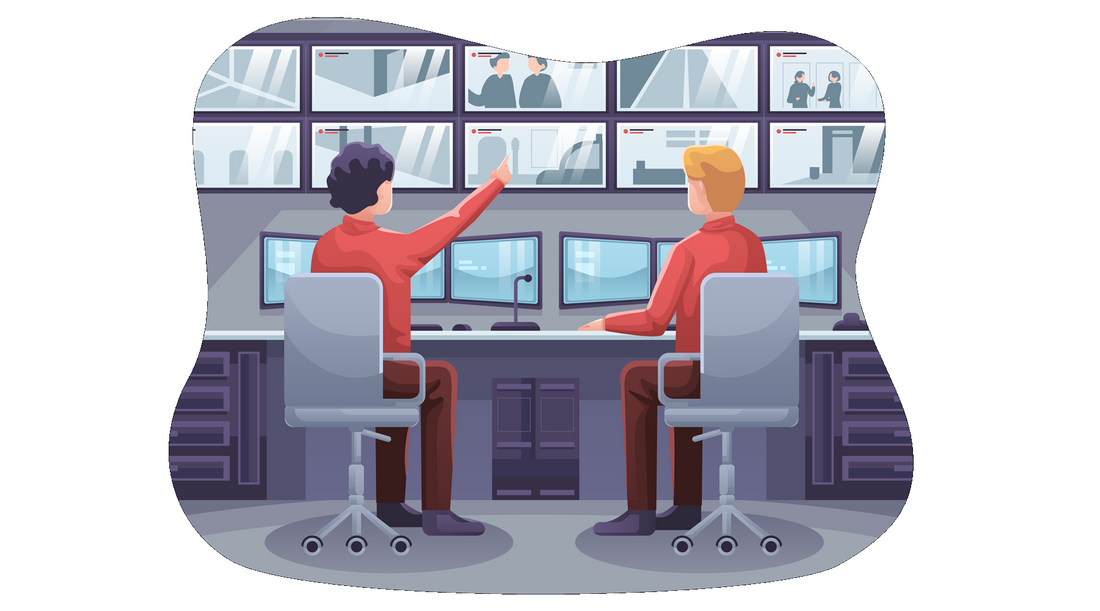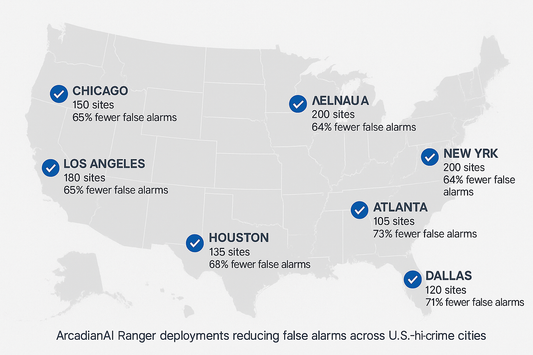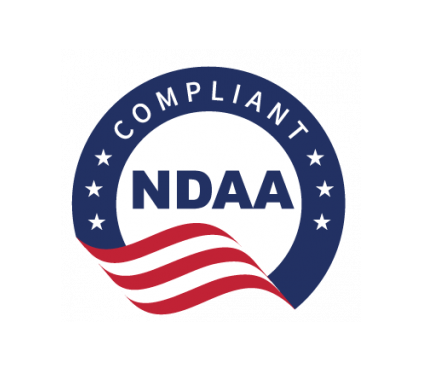What Are the Key Considerations for Selecting a Security Monitoring Service?
Introduction: Choosing the Right Security Partner As threats to businesses and property evolve, having a reliable security monitoring service has become essential. Whether protecting a warehouse, retail store, or logistics hub, the right service can mean the difference between a timely response and a costly incident. However, selecting the right...

Introduction: Choosing the Right Security Partner
As threats to businesses and property evolve, having a reliable security monitoring service has become essential. Whether protecting a warehouse, retail store, or logistics hub, the right service can mean the difference between a timely response and a costly incident. However, selecting the right provider requires careful evaluation of multiple factors, from technology and cost to reliability and integration capabilities.
In this blog, we’ll break down the key considerations businesses should weigh when choosing a security monitoring service to ensure comprehensive protection and peace of mind.
1. Technology and Features Offered
Why It Matters:
The effectiveness of a monitoring service hinges on the technology it uses. Advanced features like AI-driven analytics and cloud-based systems can significantly enhance security.
Key Questions to Ask:
- Does the service include real-time monitoring with AI-powered video analytics?
- Are cameras cloud-based or rely on traditional systems?
- Does it support remote access through mobile apps or web platforms?
Must-Have Features:
- AI-enabled anomaly detection.
- Integration with IoT devices (e.g., smart locks, sensors).
- Customizable alerts for specific triggers.
Example:
A logistics company selected a monitoring service with predictive analytics that flagged unusual nighttime activity, preventing a theft attempt.
2. Scalability and Flexibility
Why It Matters:
As your business grows, your security needs will evolve. The chosen monitoring service should adapt to new locations, larger operations, or upgraded technology.
What to Look For:
- Cloud-Based Scalability: Can the system add new devices without significant infrastructure upgrades?
- Multi-Location Monitoring: Does the service provide centralized oversight for multiple sites?
- Customizable Plans: Can you tailor services to fit your changing needs?
Example:
A retail chain expanded its surveillance across 50 stores seamlessly by using a cloud-based monitoring service.
3. Integration with Existing Systems
Why It Matters:
Security systems work best when integrated with other tools, such as access control, fire alarms, or inventory management systems.
What to Ask:
- Does the service integrate with your existing hardware and software?
- Can it connect with access control systems or POS terminals?
- Is it compatible with camera-agnostic platforms for flexibility?
Tip: Look for services that support open API for easy integration with third-party solutions.
4. Reliability and Uptime
Why It Matters:
A monitoring service is only as good as its availability. Downtime can expose your business to vulnerabilities.
Key Considerations:
- Redundancy: Does the service have backup systems in place?
- Response Time: How quickly do they act on alerts or incidents?
- Service Level Agreements (SLAs): What uptime guarantees do they provide?
Stat: Services with 99.9% uptime guarantee reduce security breaches by 20% compared to less reliable providers (Source: Gartner).
5. Compliance with Security and Privacy Regulations
Why It Matters:
Businesses in industries like healthcare, retail, or logistics must comply with regulations like HIPAA, GDPR, or CCPA. A monitoring service must align with these standards.
What to Verify:
- Is the provider certified for relevant regulations?
- How do they handle data storage and encryption?
- Are they transparent about data sharing policies?
Example:
A healthcare facility partnered with a service compliant with HIPAA regulations, ensuring secure video storage and patient privacy.
6. Cost and Value for Money
Why It Matters:
Balancing affordability with robust features is crucial to avoid overpaying or compromising security.
Consider:
- Pricing Models: Is it subscription-based, or does it involve upfront costs?
- Hidden Fees: Are there additional charges for maintenance or upgrades?
- ROI: Does the service provide features like shrinkage reduction or operational efficiency to offset costs?
Stat: Businesses using AI-driven monitoring services report a 15% reduction in operational costs (Source: Deloitte).
7. Customer Support and Service
Why It Matters:
In emergencies, responsive support can make a significant difference.
Key Metrics:
- 24/7 Availability: Is customer support available around the clock?
- Channels of Communication: Do they offer phone, chat, and email support?
- On-Site Support: Can they provide technicians for hardware issues?
Example:
A 3PL company switched providers due to poor response times, resulting in improved issue resolution within 30 minutes on average.
8. Real-Time Reporting and Insights
Why It Matters:
Data-driven decisions rely on access to detailed, actionable insights about security incidents and operational efficiency.
What to Expect:
- Incident Reports: Comprehensive logs of security breaches or anomalies.
- Dashboard Analytics: Visualize patterns like peak traffic or repeated violations.
- Custom Reports: Tailored to meet your specific operational or compliance needs.
Example:
A warehouse used monitoring analytics to identify frequently accessed areas, optimizing employee workflows and reducing operational bottlenecks.
9. Reputation and Customer Reviews
Why It Matters:
A provider’s track record offers valuable insight into its reliability and effectiveness.
How to Research:
- Read customer reviews on platforms like G2 or Capterra.
- Ask for references from businesses in similar industries.
- Evaluate case studies or success stories from the provider.
10. Future-Proofing and Innovation
Why It Matters:
Security threats and technology evolve constantly. Choosing a forward-thinking provider ensures your systems remain effective over time.
Look For:
- AI and Machine Learning: Advanced analytics to stay ahead of emerging threats.
- Regular Updates: Continuous improvement of software and hardware.
- IoT Integration: Support for connected devices to expand functionality.
Tip: Opt for providers that emphasize innovation and adaptability, such as adopting AI or blockchain for security.
Comparison Table: Key Considerations
| Factor | What to Look For |
|---|---|
| Technology & Features | AI-driven monitoring, real-time alerts |
| Scalability | Cloud-based solutions, multi-site compatibility |
| Integration | Compatibility with existing systems |
| Uptime & Reliability | 99.9% uptime guarantees, rapid response times |
| Compliance | GDPR, HIPAA, CCPA certifications |
| Cost | Transparent pricing, subscription flexibility |
| Customer Support | 24/7 availability, on-site technicians |
| Analytics | Detailed dashboards, actionable insights |
| Reputation | Positive reviews, industry expertise |
| Future-Proofing | AI, IoT, and innovative technologies |
Conclusion: Finding the Perfect Fit
Selecting the right security monitoring service requires balancing advanced features, cost-effectiveness, reliability, and compliance. By focusing on these key considerations, businesses can ensure they choose a partner that meets their current needs while scaling with their future demands.
Ready to enhance your security with cutting-edge monitoring solutions?
👉 Contact Arcadian.ai today to discover AI-powered, camera-agnostic security services tailored to your business.
Visit Us on Social Media
💼 LinkedIn
🌐 Facebook
📸 Instagram
🎥 YouTube
🎬 TikTok
🐦 X

Security is like insurance—until you need it, you don’t think about it.
But when something goes wrong? Break-ins, theft, liability claims—suddenly, it’s all you think about.
ArcadianAI upgrades your security to the AI era—no new hardware, no sky-high costs, just smart protection that works.
→ Stop security incidents before they happen
→ Cut security costs without cutting corners
→ Run your business without the worry
Because the best security isn’t reactive—it’s proactive.






